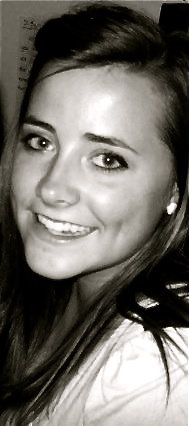| Last week I watched an anti-bullying video made by an eighth-grade student named Alye Pollack that caught my attention. The video is a simple one with music playing in the background and Pollack holding up signs without speaking a word.
The signs tell the story of how she is bullied every day at school and how bullying affects every aspect of her life. She doesn’t cut or have thought of hurting herself but is close. The video has at least 100,000 views on YouTube as of April 1, and I hope it’s making an impact on all who watch it because I know it did for me. It makes me think about those who are going through similar, complicated situations, and I have become concerned for my younger sister who is in middle school, and my other sister who will be a senior in high school. I worry what they go through on a daily basis. If a person at such a young age isn’t strong enough to handle the pressure and the derogatory words that are yelled at them, what are they supposed to do? Sometimes things are taken way too far. Pollack explained why she made the video by making a statement on YouTube. It read: “I wanted to share how I feel. Sticks and stones? I don’t think so. Words can really hurt. Think before you speak.” The video sparked my thinking about a program we used to have at our elementary, middle and high schools. It was called the Ophelia Project, or C.A.S.S. Program, which stands for “Creating a Safe School.” I was a mentor for the program and enjoyed it a lot because I do believe that many students understood our message, and, therefore, the bullying decreased. When I was in middle school, there were about 20 other mentors in the Ophelia Project with me. We would teach kids about bullying by performing different skits. The skits would always have a bully, a victim and a person in the middle. After each skit, we would ask the kids who they thought was the victim, and if they could relate to them. It is heartbreaking for me to think about how my hometown school districts no longer have this program due to budget cuts. Not only is there bullying within the school systems and on sports teams, but there is also cyber-bullying. There are stories of children who have killed each other and even committed suicide due to cyber-bullying incidents. A prime example of cyber-bullying can be seen in today’s media. Has anyone heard of Rebecca Black? Yes, we all know her song “Friday” isn’t the greatest, let alone the music video, but the way people treat her is disappointing. She is only 13 and has already heard some of the most hateful words. Bullying in our society definitely starts with what we see on TV and who is saying what. Who wears it the best, who wears it the worst? Who looks fat, who looks too thin? We ask these questions and obtain our ideas from the media. If someone doesn’t fit these standards, it’s hard for our society not to talk about it, whether it is behind their back or to their face. Despite all the horrible things being said about her, Black still focuses on the positives. She said in a recent interview, “I decided not to give the haters the satisfaction that they got me so bad.” I have to admit–although I may sound like a bully here–that it is hard not to laugh at Black. For me, I wish I could explain how such a video became so popular and how someone who does not have a great voice became as big as Justin Bieber. And let’s face it, although her video has hit millions of views, it didn’t get the best ratings. But at the same time, bullying gets to a certain point where it does cross the line. Laughing at her video and making fun of the rapper in the driver’s seat is all fun and games. When people tell Black to “go cut yourself and die,” that is when it gets out of hand. That is when it crosses the line. If you can’t say something nice then don’t say anything at all. I think this is a much better saying than the silly saying we learned when we were kids, “Sticks and stones may break my bones, but words will never hurt me.” Like Pollack said, words do hurt. Hurtful words have killed innocent victims. When can we, as a society, finally come to the realization that not only should my school district enforce programs like Ophelia and C.A.S.S., but that every school district should? It may not stop every single person from saying hurtful things or throwing someone down a hall, but it does make students more aware that words do hurt. And words do kill. The editorials of The Crusader reflect the views of individual members of the editorial board. They do not necessarily reflect the views of the entire editorial board or of the university. The content of the Forum page is the responsibility of the editor in chief and the Forum editor. |

Leave a comment